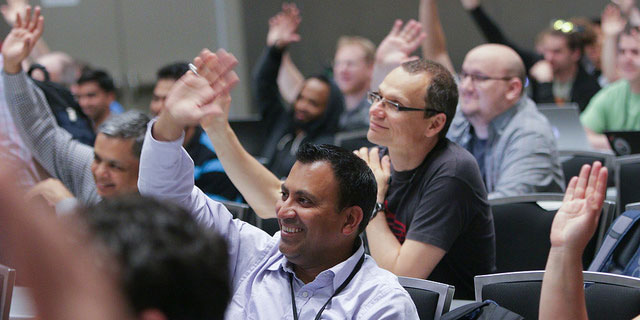Big data for managers

What you'll learn, and how you can apply it
- Identify and prioritize which projects a company should pursue
- Identify potential pitfalls in projects before they start
- Communicate business objectives to data professionals
- Understand the business implications of technical decisions and assess the risk-reward trade-offs of different projects
- Translate data science insights for business professionals and decision makers
This training is for you because...
- You're a business professional who wants to learn about big data.
- You work with data scientists or analysts regularly.
- You manage teams or projects with a significant data component.
- You find yourself translating between data and management.
Michael Li and Rich Ott offer a nontechnical overview of AI and data science. Learn common techniques, how to apply them in your organization, and common pitfalls to avoid. You’ll pick up the language and develop a framework to be able to effectively engage with technical experts and utilize their input and analysis for your business’s strategic priorities and decision making.
Outline
Introduction to AI and data science
- Terms and definitions: What does machine learning mean?
- Historical context and present day
- Drivers for AI and data science
- What’s so different about big data?
- “AI is eating the world.”
- Making AI practical
Algorithms and techniques
- Data formats, databases, and schemas
- Evaluating model performance and validating models
- Terminology: Regression, classification, supervised, and unsupervised
- Advanced models: Random forests, support vector machines, deep learning, and neural
networks
Industry use cases
- Finance
- Healthcare
- Industrial
- Technology
AI within the organization
- Maturity levels for AI
- Evaluating good projects for AI
- Build versus buy and hire versus train
- Skills, tools, and platforms needed for AI
- Structuring data and AI initiatives within your organization: Successful and cautionary
tales
Common pitfalls and fallacies in AI and data science
- AI and data science in the headlines: The good, the bad, and the ugly
- Legal and regulatory implications
- Litigation and liabilities of bad data science
- Common fallacies in data science and AI
- Lying with statistics and how to spot it
About your instructors

Tianhui Michael Li is the founder and president of the Data Incubator, a data science training and placement firm. Michael bootstrapped the company and navigated it to a successful sale to the Pragmatic Institute. Previously, he headed monetization data science at Foursquare and has worked at Google, Andreessen Horowitz, JPMorgan, and D.E. Shaw. He’s a regular contributor to the Wall Street Journal, TechCrunch, Wired, Fast Company, Harvard Business Review, MIT Sloan Management Review, Entrepreneur, VentureBeat, TechTarget, and O’Reilly. Michael was a postdoc at Cornell, a PhD at Princeton, and a Marshall Scholar in Cambridge.

Richard Ott obtained his PhD in particle physics from the Massachusetts Institute of Technology, followed by postdoctoral research at the University of California, Davis. He then decided to work in industry, taking a role as a data scientist and software engineer at Verizon for two years. When the opportunity to combine his interest in data with his love of teaching arose at The Data Incubator, he joined and has been teaching there ever since.
Conference registration
Get the Platinum pass or the Training pass to add this course to your package.
Sponsorship Opportunities
For exhibition and sponsorship opportunities, email strataconf@oreilly.com
Partner Opportunities
For information on trade opportunities with O'Reilly conferences, email partners@oreilly.com
Contact Us
View a complete list of Strata Data Conference contacts
©2019, O'Reilly Media, Inc. • (800) 889-8969 or (707) 827-7019 • Monday-Friday 7:30am-5pm PT • All trademarks and registered trademarks appearing on oreilly.com are the property of their respective owners. • confreg@oreilly.com








